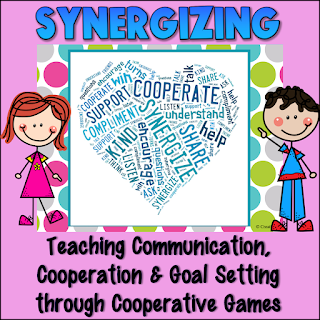Hey fellow school counselors! I want to emphasize the importance of conducting a student needs assessment at the beginning of each school year. It's a crucial step in developing a comprehensive school counseling program that meets the standards set by the American School Counselor Association (ASCA). Let me break it down for you and explain why it's so vital, as well as how we can utilize the data collected to design a counseling program that aligns with ASCA standards.
Providing Individualized Support
First and foremost, conducting a student needs assessment allows us to provide individualized support to our students. We all know that each student has unique circumstances and challenges that affect their well-being and academic success. By gathering data on their experiences, concerns, and aspirations, we can identify specific areas where they need support. This enables us to tailor our counseling services to meet their individual needs and help them grow and become more resilient.
Evaluating the Effectiveness of Counseling Programs
Another important benefit of conducting an annual needs assessment is evaluating the effectiveness of our counseling programs. We want our programs to be evidence-based and outcome-driven. By collecting data through the assessment, we can gain insights into which interventions are successful and where improvements or adjustments are needed. This data-driven approach ensures that our counseling program evolves and meets the changing needs of our students.
Identifying Service Gaps
The needs assessment also helps us identify gaps in the services we provide. We can pinpoint specific groups of students who may require additional support, such as those struggling academically, socially, or emotionally. Recognizing these gaps allows us to allocate resources and design interventions that address the unique needs of these student groups.
Program Planning and Development Aligned with ASCA Standards
When it comes to program planning and development, ASCA standards serve as our guide. The data collected from the needs assessment provides valuable insights into the areas where our program needs to align with these standards. Analyzing the data allows us to identify priority areas for improvement, set measurable goals, and develop strategic action plans. This data-informed approach ensures that our counseling program not only meets our students' needs but also aligns with the professional standards of our field.
Collaboration and Advocacy through Data Sharing
Furthermore, the data we gather from the needs assessment can be a powerful tool for collaboration and advocacy within our school community. By sharing the results with administrators, teachers, and parents, we can demonstrate the importance of counseling services and the positive impact they have on student well-being and academic achievement. This data can help engage stakeholders in supporting and investing in our counseling program.
Streamlining the Data Collection Process with Google Forms
In the past, conducting a Student Needs Assessment involved paper-and-pencil surveys that consumed significant amounts of our time and effort for data compilation. However, with the advent of technology, specifically Google, we have embraced a smarter approach to our work.
Efficient Data Collection
By utilizing Google Forms, I have created a survey that streamlines the data collection process. Google's user-friendly platform enables us to gather vital student information swiftly and effortlessly. What's more, this form requires only one to two minutes for students to complete, allowing us to maximize our time spent directly with students.
Utilizing Compiled Results to Refine the Program
With the compiled results at our disposal, we can effectively identify potential gaps in our services and refine our program accordingly. The data obtained through this streamlined process aids us in determining the need for small group interventions, planning future classroom lessons, and identifying students who may require additional support.
Ready to Use Resource:
Looking for more Data Driven Resources? Check this one out:













